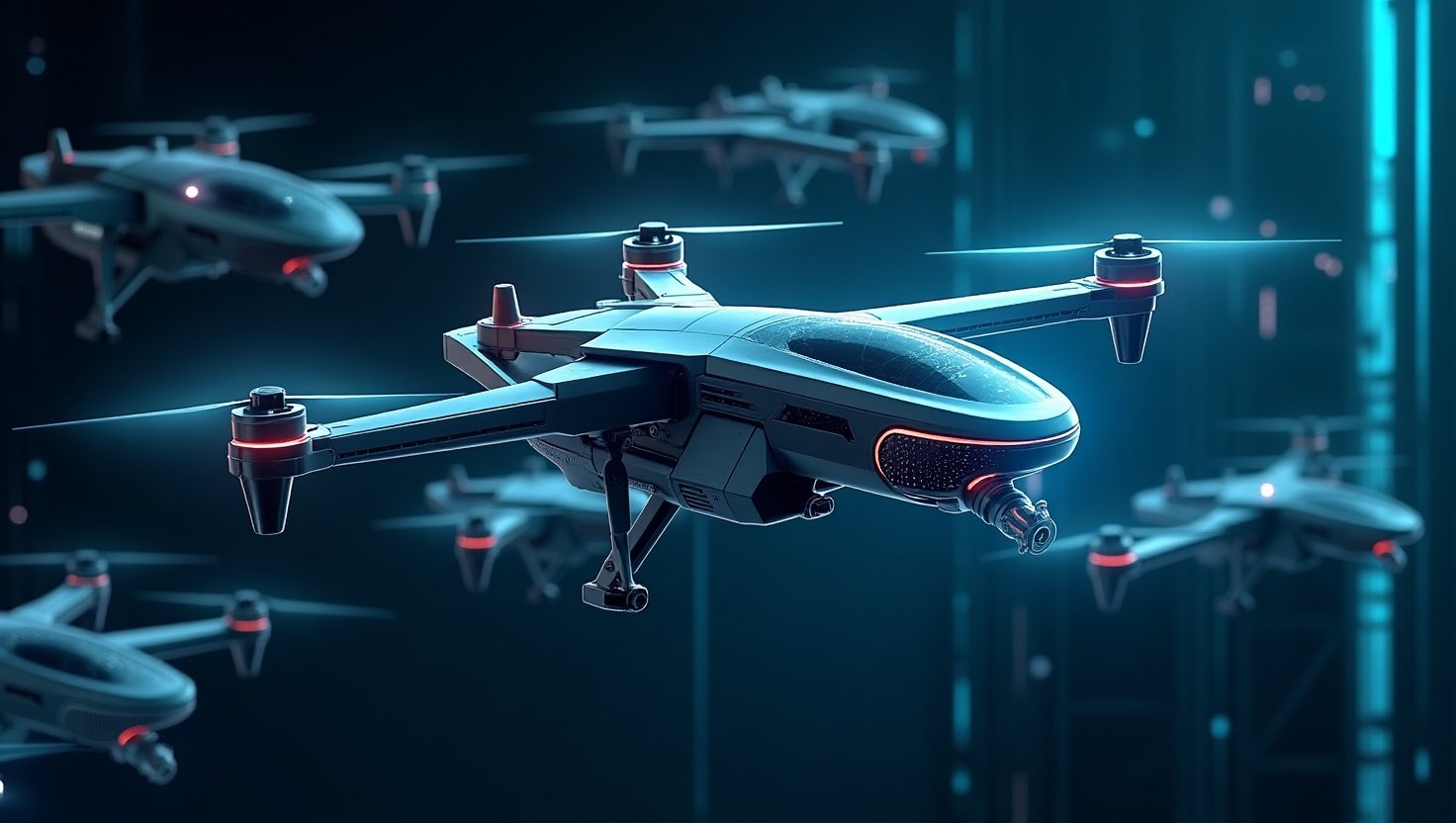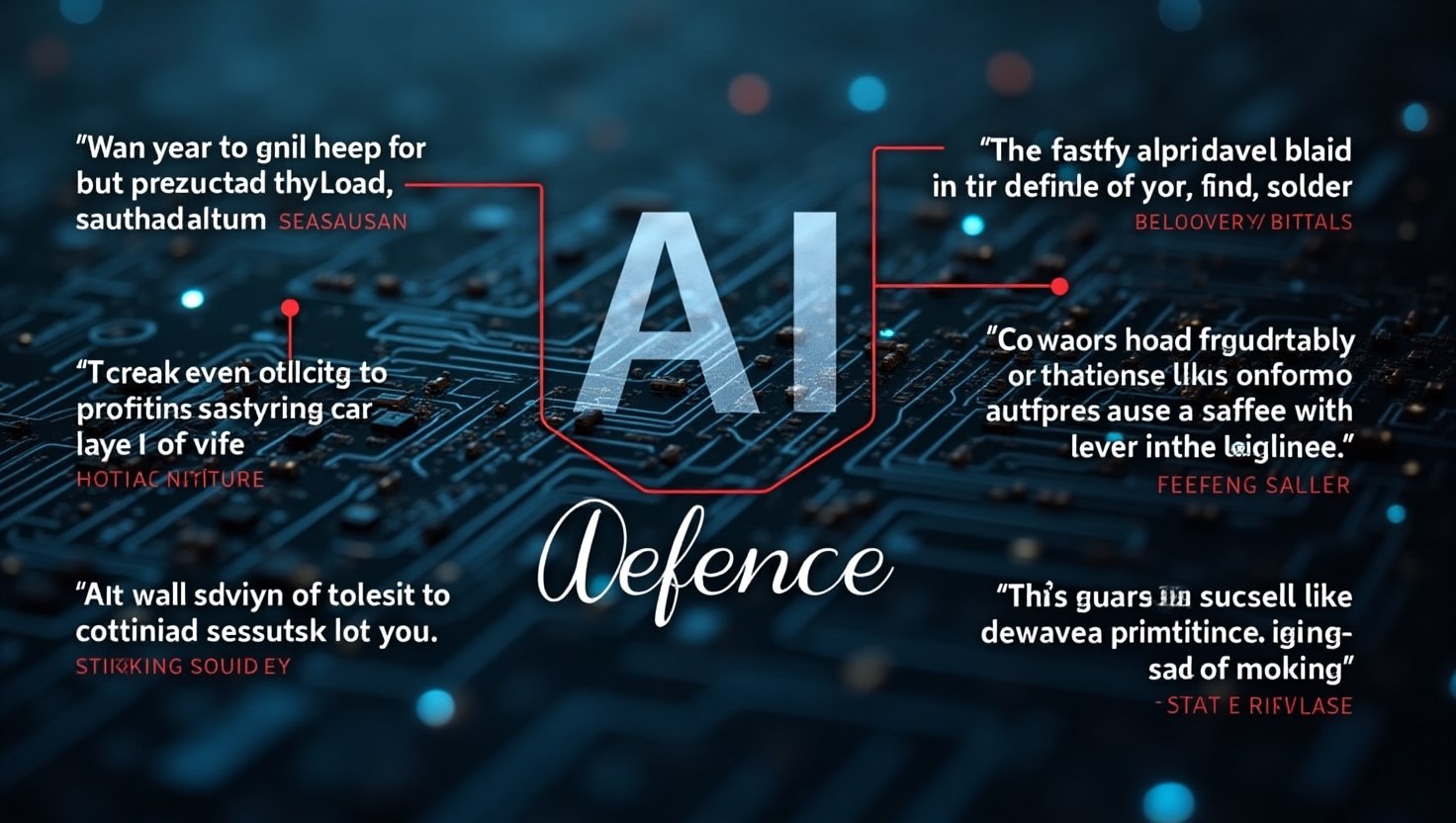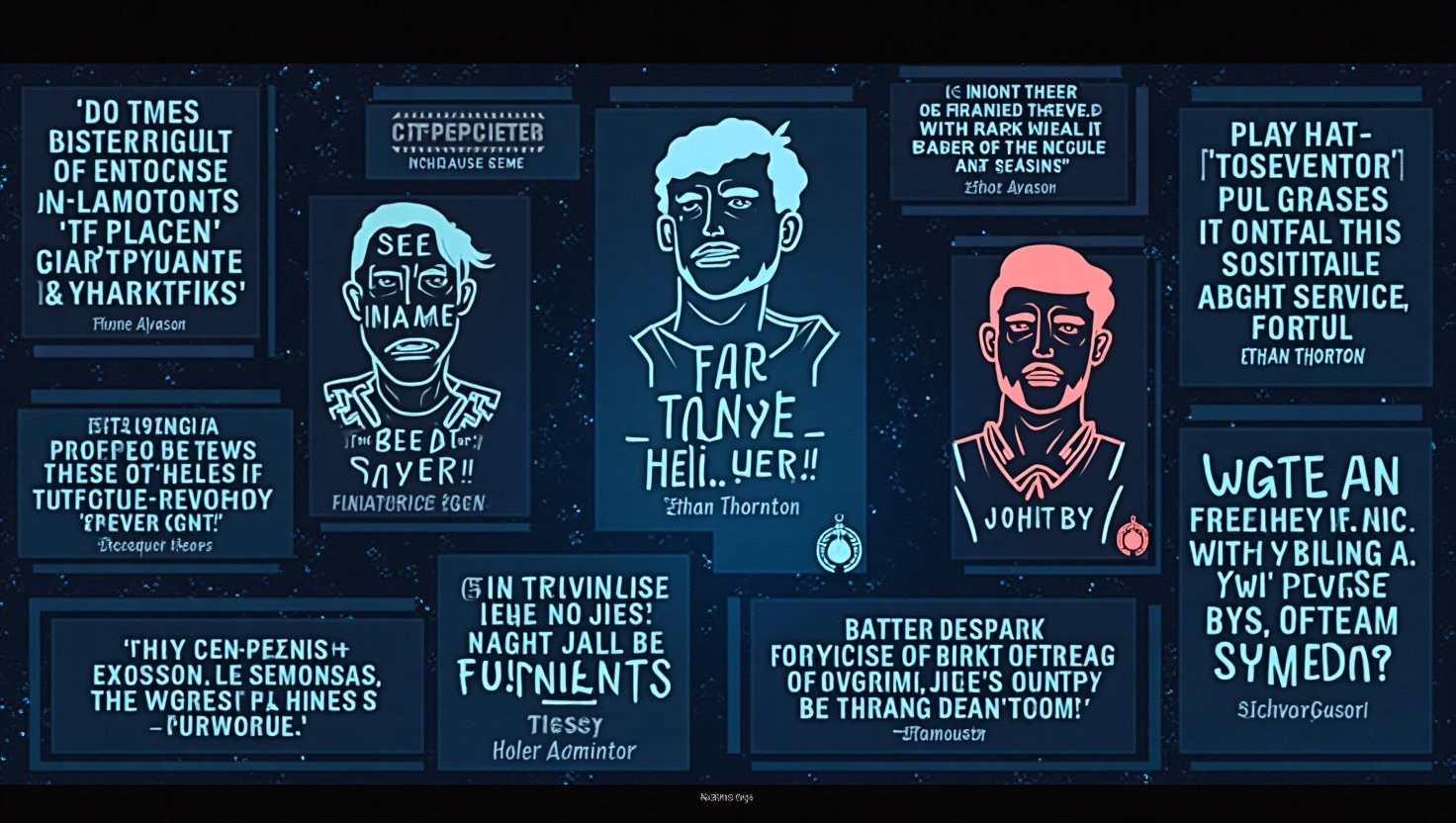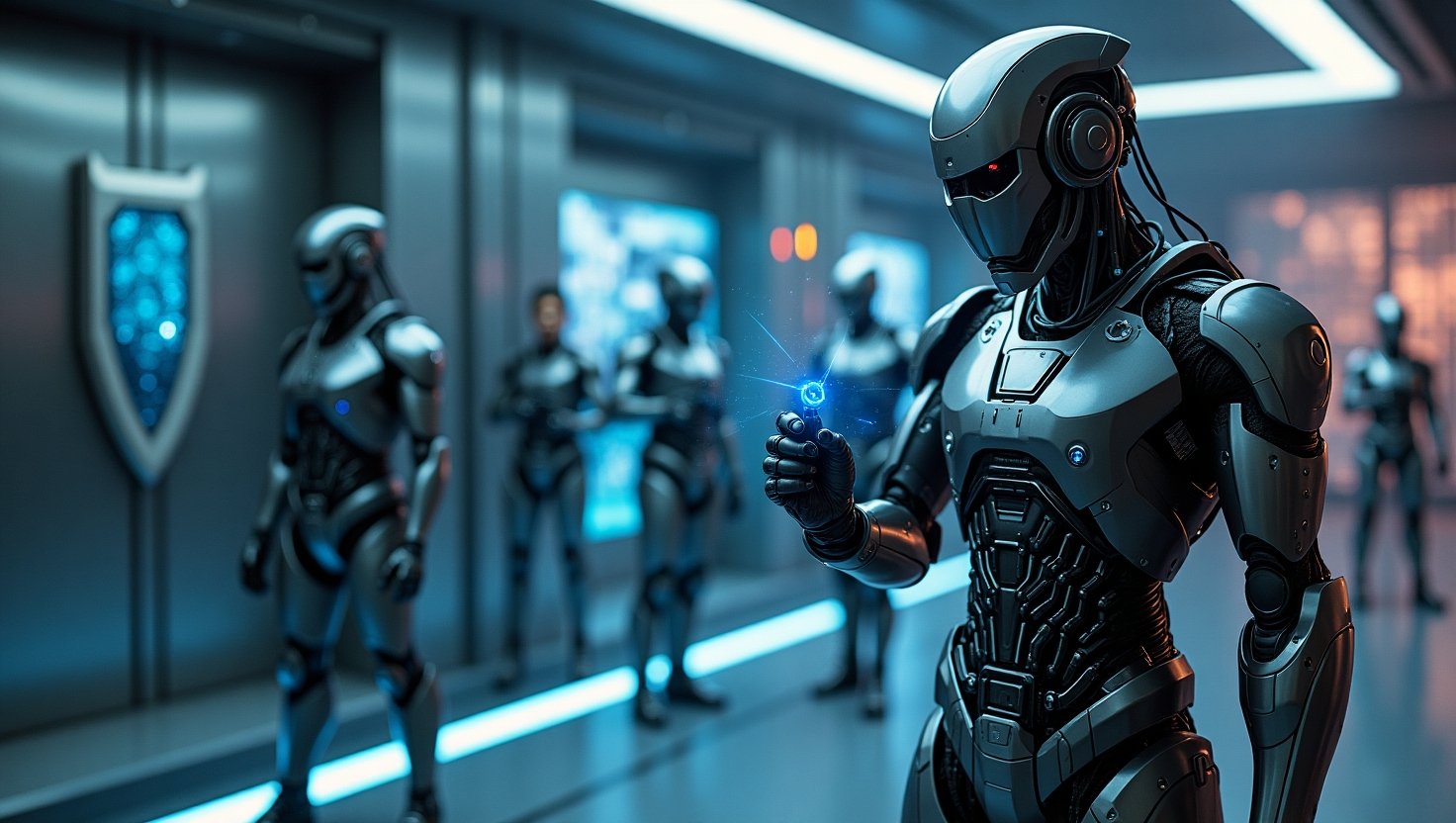In an era marked by rapid technological progress, the intersection of artificial intelligence and defense technology is capturing the attention of innovators and leaders alike. Startups such as Mach Industries are not merely participating in this pivotal moment; they are spearheading a transformation that redefines national security itself. With advancements that blend AI-native hardware, software, and autonomy, these companies are ushering in a new age of defense capabilities that promise to address contemporary threats with unprecedented agility and precision.
As the excitement around these innovations grows, so too does the recognition of AI-driven solutions as essential components in safeguarding our nations and shaping the future of warfare. At TechCrunch Disrupt 2025, thought leaders and visionaries, including Ethan Thornton from Mach Industries, will dive into crucial discussions about how next-generation defense technologies are being built from the ground up.
It’s clear that this isn’t just the future of defense; it is the now. The implications of this AI-powered evolution reach far beyond traditional boundaries, introducing new paradigms in diplomacy, strategy, and geopolitical responsibility. Join us as we explore how these startups are rewriting the playbook of national security, making the world a safer place through innovation and vision.

Mach Industries was founded in 2023 by entrepreneur Ethan Thornton, who emerged from the hallowed halls of the Massachusetts Institute of Technology (MIT). Inspired by the need for advanced, adaptive defense solutions in a rapidly evolving geopolitical landscape, Thornton aimed to bridge the gap between emerging technologies and national security needs. In his own words, Ethan expressed, “This isn’t the future of defense, it’s the now,” emphasizing the urgency of applying innovative solutions to address current threats. With a mission focused on developing decentralized next-gen defense technologies, Mach Industries stands at the forefront of an industry undergoing radical transformation. By utilizing AI-driven materials and methods, the company seeks to create systems that not only enhance military capabilities but also adjust in real time to the fluid dynamics of modern warfare.
The origins of Mach Industries reflect a broader vision articulated by Thornton: “How next-gen defense is being built from the ground up with AI at its core.” This commitment to integrating artificial intelligence into the fabric of defense strategy is not merely technological; it is imbued with a sense of geopolitical responsibility. Thornton and his team recognize that the challenges faced by national defense are complex and multifaceted, requiring solutions that are as dynamic as the situations they aim to resolve.
Through its pioneering work, Mach Industries is set to redefine defense paradigms, leading the charge into a future where autonomous systems and AI-native startups play a critical role in national security. The ambitions of Thornton and his company align perfectly with the discussions being anticipated at TechCrunch Disrupt 2025, where over 10,000 startup and VC leaders will converge to explore the future of defense technology, emphasizing the importance of innovation in safeguarding freedom and stability.
In summary, Mach Industries embodies a forward-thinking approach that challenges conventional methodologies, repositioning defense technology as an integral part of contemporary security discourse.
TechCrunch Disrupt 2025 Highlights: Defense Technology
TechCrunch Disrupt 2025 emerged as a vital platform for delving into defense technology, spotlighting critical discussions around funding, regulatory frameworks, and the emergent role of startups in national security. The event attracted thousands of industry leaders keen on exploring innovative solutions relevant to modern defense challenges, with particular emphasis on artificial intelligence (AI).
AI Defense Panel
A notable highlight was the “AI Defense” panel, featuring luminaries like Dr. Kathleen Fisher from DARPA, Sri Chandrasekar of Point72 Ventures, and Justin Fanelli, the CTO of the Department of the Navy. The discourse zeroed in on how to balance technological innovation with ethical oversight. Experts underscored the growing participation of startups in defense, noting the increasing demand for agile solutions that can keep pace with contemporary threats. The panel also discussed the necessity for robust funding mechanisms to support promising startups that show potential to innovate in this sector. For further insights, visit the full discussion here.
Navigating Government Contracts
Another pivotal session focused on guiding startups toward successfully securing government contracts. Rebecca Gevalt from Dcode Capital illustrated strategic approaches that young defense firms could employ, recommending they understand government procurement processes and develop repeatable revenue streams aligned with national security requirements. Her insights emphasized that startups need not only innovative ideas but also a strategic mind for navigating the often-complex landscape of government funding. More details from this session can be found here.
The Future of Defense with Autonomous Solutions
Ethan Thornton, CEO of Mach Industries, contributed hugely to discussions on decentralized defense systems and the use of AI and autonomous technologies. He emphasized the significance of developing dual-use technologies that have applications in both commercial and military sectors. This evolution positions startups like Mach Industries as crucial players in reimagining defense strategies and capabilities. Read more about this topic here.
Integrating Space Innovations
Concerning the intersection of space technology and defense, representatives from The Aerospace Corporation and NASA shared their visions for public-private partnerships as a catalyst for advancing defense capabilities through space innovations. They outlined the importance of startups contributing to a secure space infrastructure, thus expanding the narrative of national security to encompass cosmic dimensions as well. For information on this important integration, visit this link.
Conclusion
In sum, TechCrunch Disrupt 2025 underscored the dynamic interplay between technological innovation, regulatory frameworks, and the strategic involvement of startups in elevating national defense capabilities. The discussions pointed to a future where AI-driven defenses, ethical considerations, and collaborative ventures steering through complex government systems redefine how nations approach security, making the insights from this event invaluable for stakeholders across the defense technology landscape.
| Startup Name | Founding Year | Key Innovations | Funding Received |
|---|---|---|---|
| Mach Industries | 2023 | Hydrogen-powered vertical takeoff drone (Viper), hypersonic glide bomb (Glide), decentralized manufacturing systems yielding high production volumes. | $185 million |
| Shield AI | 2015 | AI-powered autonomous systems, Hivemind software for autonomous drone operations in GPS-denied environments. | $240 million (2025) |
| Anduril Industries | 2017 | Autonomous defense systems, Lattice AI for integrated surveillance, plans for $1 billion facility to produce AI-powered weapon systems. | $200 million (2020) |
| Applied Intuition | 2017 | Simulation and software tools for autonomous vehicle development, including military applications. | $250 million (2024) |
The Role of AI-Native Startups in Shaping National Defense
In today’s rapidly evolving landscape of national security, AI-native startups are emerging as indispensable players. These innovative entities leverage artificial intelligence to redefine defense strategies, enhancing capabilities that directly impact national safety and global stability. As highlighted by Ethan Thornton, founder of Mach Industries, “AI-native startups can play a critical role in national defense,” underlining the immediate necessity for adaptation in a field that can no longer rely solely on traditional methods.
One major area where AI-native startups are making waves is in the development of autonomous weapons. These technologies not only engage in combat scenarios with autonomy but also analyze data in real time, adjusting tactics based on situational demands. The application of AI in weaponry fundamentally shifts how conflicts may be managed. Thornton notes, “This isn’t the future of defense; it’s the now,” emphasizing that the integration of AI into military contexts is not just aspirational but essential.
Moreover, the rise of decentralized strategies is a hallmark of these startups. Unlike traditional, centralized defense systems, decentralized technology allows for agile responses and distributed decision-making processes. This shift can significantly enhance defense operations, making them more resilient to cyber attacks and other vulnerabilities. The insights from TechCrunch Disrupt 2025 reveal that decentralized platforms can lead to more adaptive and flexible strategies, creating environments where technological innovation aligns closely with operational needs.
Technological innovations developed by startups such as Mach Industries extend beyond weapons and strategies. They serve to refine dual-use technologies, which can seamlessly pivot between civilian and military applications. This flexibility not only enhances capability but also contributes to economic efficiency in defense spending. Thornton’s focus on building next-generation defense mechanisms from the ground up showcases a vision that intertwines operational effectiveness with the principles of innovation and responsibility.
As we witness the transformation of national defense through the lens of AI-native startups, it is evident that these companies are not just participants; they are central to redefining the architecture of defense systems. Their advancements speak to the broader implications for global security and the ethical considerations that accompany them, posing significant questions about regulation and governance. As the landscape evolves, it is clear that the future of defense technology lies firmly in the hands of those willing to embrace change, innovate relentlessly, and face the challenges of modern warfare with cutting-edge solutions.

Conclusion
In conclusion, the advancements in AI-driven defense technologies represented by companies like Mach Industries underscore a pivotal transformation in the landscape of national security. With initiatives led by visionary leaders like Ethan Thornton, the integration of artificial intelligence into defense mechanisms is not merely speculative; it is actively occurring today. Thornton’s assertion that “this isn’t the future of defense, it’s the now” resonates powerfully as these startups challenge traditional paradigms and reshape operational frameworks that were once considered unchangeable.
Mach Industries exemplifies the potential of AI-native startups to deliver solutions that meet contemporary threats with agility and precision. The decentralized strategies and autonomous systems being developed reflect a forward-thinking approach that not only enhances military capabilities but also adapts in real time to the evolving nature of conflicts. This flexibility allows defense strategies to align closely with modern technological advancements and geopolitical realities, making these innovations essential for safeguarding national interests.
The discussions and insights shared at TechCrunch Disrupt 2025 paint a promising picture of an industry on the brink of significant evolution. It is evident that the dialogue surrounding ethical considerations, funding, and the regulatory systems necessary to support these innovations are paramount. As nations navigate the complexities of modern warfare, the role of AI-driven technologies and the innovative spirit of startups like Mach Industries will be crucial in shaping a new era for defense capabilities.
As we move forward, it is vital to recognize that the integration of AI in the defense sector is not just about technology—it’s about philosophy, strategy, and responsibility. Stakeholders must embrace this transformation while weighing the ethical implications associated with such powerful tools. In doing so, the defense industry, buoyed by groundbreaking advancements, can truly redefine what it means to ensure safety and security on a global scale. This ongoing evolution reminds us that innovation lies at the heart of national defense, and the future is being forged through the courage to embrace change and harness the power of artificial intelligence.
Insights from Industry Leaders on AI in Defense Technology
To enhance the discourse around AI in defense technology, it is essential to include the insights of industry leaders who are at the forefront of this transformation. Here are some significant remarks by Ethan Thornton and other key figures in the field:
-
Ethan Thornton, CEO of Mach Industries: “This isn’t the future of defense, it’s the now.”
This statement encapsulates the urgency and immediate relevance of integrating AI-driven technologies into defense strategies.
-
Ethan Thornton: “How next-gen defense is being built from the ground up with AI at its core.”
This emphasizes the foundational role of AI in the next generation of defense technologies and its potential to reshape how we approach security.
-
Unnamed Industry Expert: “AI-native startups can play a critical role in national defense.”
This underscores the vital niche that innovative startups occupy in addressing contemporary national security challenges.
These voices highlight the key arguments for embracing AI at the intersection of defense and technology, reinforcing that the ongoing developments are both necessary and transformative.

Image showing the impactful insights from leaders in the defense tech sector.

Image reflecting on the quotes of industry leaders like Ethan Thornton in the realm of AI-driven defense technologies.
Dual-Use Technologies and Geopolitical Responsibilities
Dual-use technologies, defined as advancements that can be utilized for both civilian and military purposes, are becoming increasingly central to the discourse surrounding national defense and global security. As nations invest in these technologies, including AI-driven systems, autonomous vehicles, and communication networks, they face complex ethical and geopolitical challenges. The implications of these technologies extend beyond mere innovation; they compel governments and industries to contend with the responsible application of powerful capabilities that could alter the balance of power among nations.
In the context of defense, dual-use technologies have the potential to provide significant strategic advantages. However, they also pose risks, such as technological proliferation to hostile entities and the potential misuse of these capabilities in ways that could escalate conflicts. For instance, advancements in AI can enhance surveillance operations, leading to increased scrutiny of civilian activities and triggering debates about privacy and human rights. This duality necessitates a careful consideration of regulatory frameworks to govern how these technologies are developed and deployed.
Moreover, countries engaging in defense collaborations must navigate geopolitical responsibilities. They are often faced with the dilemma of fostering innovation while ensuring that these technologies do not contribute to an arms race. As seen during events like TechCrunch Disrupt 2025, the dialogue among defense stakeholders emphasizes not just innovation but also the critical importance of ethics in deploying dual-use technologies. The challenge lies in balancing national security interests with a commitment to global stability and human rights, a topic that is central to discussions on the future of defense. As we forge ahead into an age marked by rapid technological development, the stewardship of dual-use technologies will undoubtedly play a pivotal role in shaping the geopolitical landscape.

